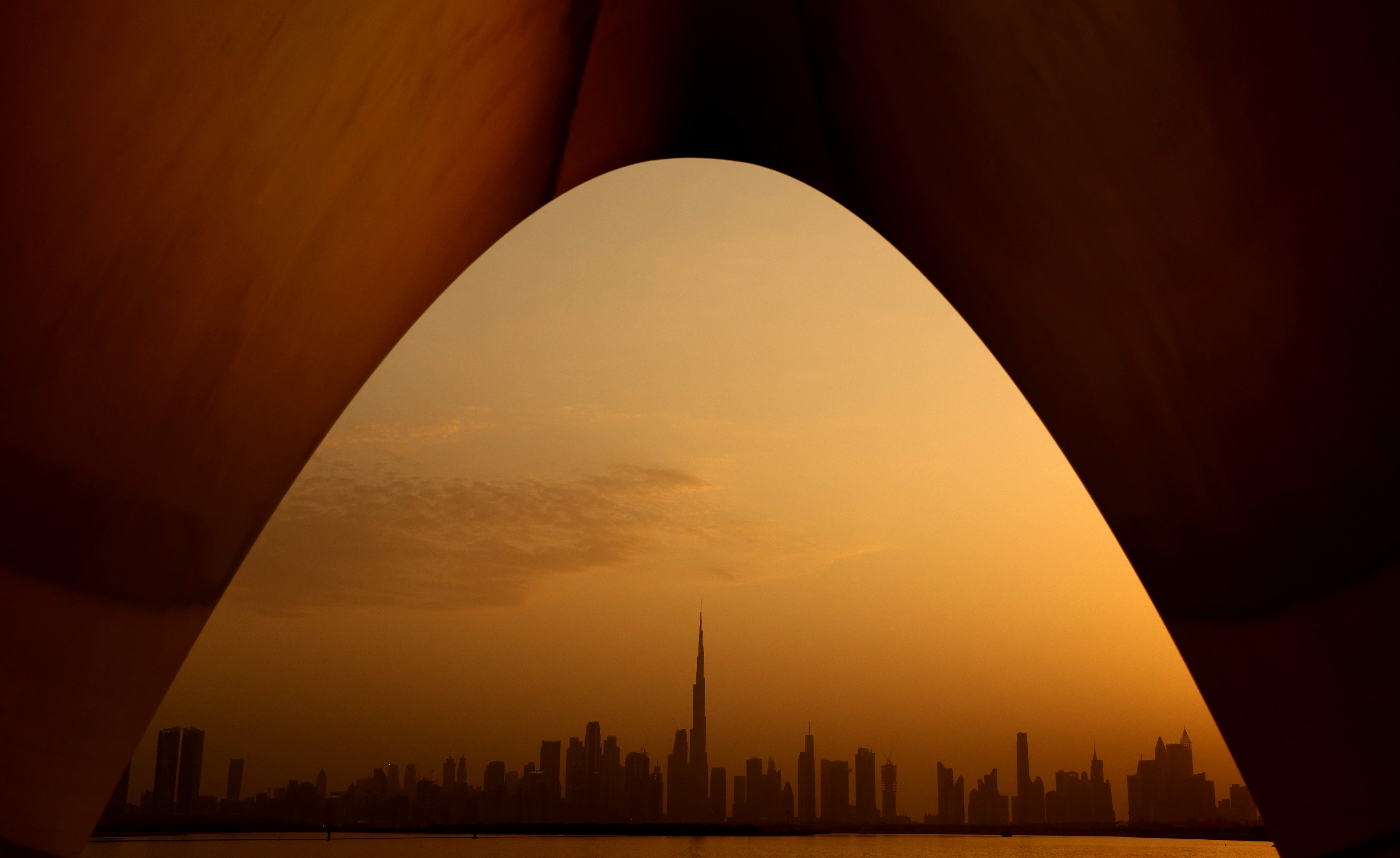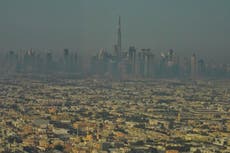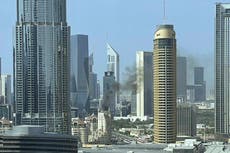Dirty money from Russia and Europe flooding Dubai real estate, researchers say
Oligarchs, mobsters and embezzlers are among owners of billions’ worth of real estate in the glittery city-state, as Borzou Daragahi discovers


One is a Russian businessman associated with Chechen warlord Ramzan Kadyrov, who serves as Vladimir Putin’s attack dog. Another is the alleged leader of an Irish organised crime group involved in cocaine trafficking. Yet another is a Czech national under United States treasury department sanctions for running a cryptocurrency exchange that became a hub of blackmail.
What they have in common, along with hundreds of others revealed in a recently published data leak and investigative research project, is that they own property in Dubai, which has emerged as a major hub for dirty money.
Though an entity of only 3.5 million people, Dubai, one of seven princedoms that make up the United Arab Emirates (UAE), accounts for up to 3 per cent of global offshore real estate, according to the research.
They don’t decide to make Dubai home for the good schools and fresh air, experts say.
“The Dubai property market is a key haven for international kleptocrats, transnational organised crime, and a vast array of other illicit actors – from narcotics traffickers to Russian oligarchs,” says the Centre for Advanced Defence Studies, or C4ADS, the Washington-based think tank that obtained the data with the assistance of confidential sources in the UAE.
“These networks come to the United Arab Emirates seeking the benefits of its high levels of secrecy [and] gaps in enforcement, and to use luxury property as a vehicle to store and launder ill-gotten gains.”
The research was released this week by C4ADS and a consortium of news organisations led by the Norwegian news outlet E24 and the Organised Crime and Corruption Reporting Project.
The latest revelations, based on data on almost all of Dubai’s 800,000 properties, add to the city-state’s image as a luxury playground for wealthy crooks hiding their money while indulging in golf courses, nightclubs, fine dining and beach resorts.
“Different tax havens provide different services,” says Annette Alstadsæter, a scholar at the Norwegian University of Life Sciences, who headed a team of academic researchers who independently analysed the data in an anonymised manner.
“Some tax havens are used for having mailbox companies to hide ownership of assets located elsewhere. But in Dubai you can basically use your money; you can hide it there in properties and use it there.”
A number of Russian oligarchs have already docked their yachts in Dubai’s marinas to avoid western sanctions. The Financial Times reported last week that Russian oligarchs were seeking to swap their London flats for Dubai properties in order to avoid the scrutiny of western regulators seeking to punish the Kremlin and its enablers for the unprovoked invasion of Ukraine.
Several years ago, C4ADS identified 81 Dubai properties worth more than $107m (£85m) connected to individuals under sanctions.
Among the famous high-profile figures already known to be on the lam in Dubai is Sedat Peker, an outspoken Turkish organised-crime boss who last year began revealing his dealings with top Ankara officials in a series of YouTube videos.
Another is Vasil Bozhkov, a disgraced Bulgarian casino oligarch who also threatened to strike back against Sofia officials by revealing the secrets of the government of former prime minister Boyko Borissov.
According to the academic researchers’ new 46-page paper, titled Who Owns Offshore Real Estate? Evidence from Dubai, foreigners control more than a quarter of the Dubai real estate market or about $146bn (£117bn) worth of properties, about twice the value of foreign-owned properties in London.
The researchers found that among Norwegians owning property in Dubai, 70 per cent had violated the law by not reporting their properties to the tax authorities, suggesting that many of the investors use the emirate to hide their wealth.
The UAE does not allow foreigners to own real estate. But non-emiratis may de facto purchase property under 99-year leases.
Some 35,000 Indian nationals make up the largest group of foreign owners, with 23,000 Britons coming in second and European Union citizens accounting for the third-largest batch.
More than 20 reporters from western and eastern Europe, Scandinavia, the Baltics and the Balkans sifted through the names of the property owners to find well-known crooks and scofflaws.
The team of reporters identified more than 100 Russian political figures, media personalities, and oligarchs close to the Kremlin. There were also dozens of names of Europeans who have been accused of money laundering, embezzling and corruption, including several who are on the run from the law.
Among the Russians who own Dubai property are Ruslan Baisarov, a wealthy businessman of Chechen descent who is chummy with Mr Kadyrov, whose forces were recently accused of extreme war crimes in Ukraine. Another is Alexander Borodai, a member of the Russian parliament who took up a leadership position in Ukraine’s east after pro-Kremlin forces seized control of territory in 2014.
Other property owners include Daniel Kinahan, the alleged mobster from Ireland, infamous for his boxing world connections, who is currently under US sanctions and whose assets were frozen by the UAE last month.
The Dubai property market is a key haven for international kleptocrats, transnational organised crime, and a vast array of other illicit actors
Tibor Bokor, the Czech executive of a cryptocurrency market allegedly used by criminals and blackmailers, was placed under US sanctions last month. Miroslav Vyboh, a Slovak national facing corruption charges, also owns property in Dubai, though a representative told the OCCRP he had never lived there and was seeking to sell.
Italian meat-industry mogul Francesco Giordano, who was arrested by police on tax evasion charges, reportedly co-owns several flats in Dubai.
Dubai has shown little willingness to open up its books and stop allowing the wealthiest crooks to hide their money on its shores. Experts suggest western sanctions on financial transactions coming to and from Dubai may be the only way to persuade the city-state to crack down.
“The latest research is another piece of evidence in a chain of evidence showing how bad secrecy is,” says Ms Alstadsæter. “Secrecy is bad. Secrecy enables tax evasion, but also corruption and money laundering, and even terror financing.”
Join our commenting forum
Join thought-provoking conversations, follow other Independent readers and see their replies
Comments


Bookmark popover
Removed from bookmarks